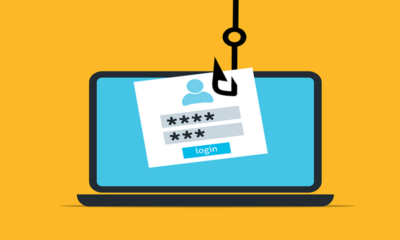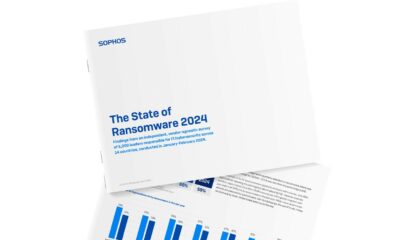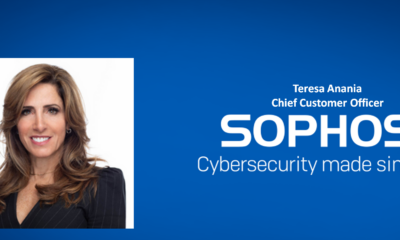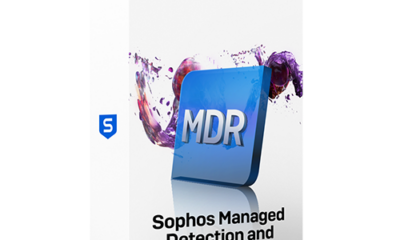GRTech
Sophos says it Anticipates AI-Based Attack Techniques and Prepares Detections


At the Moment, Adversaries are Skeptical of AI for Cybercrime, According to Sophos Research
Sophos, a global leader in innovating and delivering cybersecurity as a service, has released two reports about the use of AI in cybercrime.
The first report—“The Dark Side of AI: Large-Scale Scam Campaigns Made Possible by Generative AI”—demonstrates how, in the future, scammers could leverage technology like ChatGPT to conduct fraud on a massive scale with minimal technical skills.
However, a second report, titled “Cybercriminals Can’t Agree on GPTs,” found that, despite AI’s potential, rather than embracing large language models (LLMs) like ChatGPT, some cybercriminals are skeptical and even concerned about using AI for their attacks.
The Dark Side of AI
Using a simple e-commerce template and LLM tools like GPT-4, Sophos X-Ops was able to build a fully functioning website with AI-generated images, audio, and product descriptions, as well as a fake Facebook login and fake checkout page to steal users’ login credentials and credit card details.
The website required minimal technical knowledge to create and operate, and, using the same tool, Sophos X-Ops was able to create hundreds of similar websites in minutes with one button.
“It’s natural—and expected—for criminals to turn to new technology for automation. The original creation of spam emails was a critical step in scamming technology because it changed the scale of the playing field. New AIs are poised to do the same; if an AI technology exists that can create complete, automated threats, people will eventually use it. We have already seen the integration of generative AI elements in classic scams, such as AI-generated text or photographs to lure victims.
“However, part of the reason we conducted this research was to get ahead of the criminals. By creating a system for large-scale fraudulent website generation that is more advanced than the tools criminals are currently using, we have a unique opportunity to analyze and prepare for the threat before it proliferates,” said Ben Gelman, senior data scientist, Sophos.
Cybercriminals Can’t Agree on GPTs
For its research into attacker attitudes towards AI, Sophos X-Ops examined four prominent dark web forums for LLM-related discussions. While cybercriminals’ AI use appears to be in its early stages, threat actors on the dark web are discussing its potential when it comes to social engineering. Sophos X-Ops has already witnessed the use of AI in romance-based, crypto scams.
In addition, Sophos X-Ops found that many posts were related to compromised ChatGPT accounts for sale and “jailbreaks”—ways to circumvent the protections built into LLMs, so cybercriminals can abuse them for malicious purposes. Sophos X-Ops also found ten ChatGPT-derivatives that the creators claimed could be used to launch cyber-attacks and develop malware. However, threat actors had mixed reactions to these derivatives and other malicious applications of LLMs, with many criminals expressing concern that the creators of the ChatGPT imitators were trying to scam them.
“While there’s been significant concern about the abuse of AI and LLMs by cybercriminals since the release of ChatGPT, our research has found that, so far, threat actors are more skeptical than enthused. Across two of the four forums on the dark web we examined, we only found 100 posts on AI. Compare that to cryptocurrency where we found 1,000 posts for the same period.
“We did see some cybercriminals attempting to create malware or attack tools using LLMs, but the results were rudimentary and often met with skepticism from other users. In one case, a threat actor, eager to showcase the potential of ChatGPT inadvertently revealed significant information about his real identity. We even found numerous ‘thought pieces’ about the potential negative effects of AI on society and the ethical implications of its use. In other words, at least for now, it seems that cybercriminals are having the same debates about LLMs as the rest of us,” said Christopher Budd, director, X-Ops research, Sophos.
GRTech
Nnaemeka Ani Admonishes African Techies to Build for Legacy
“Let’s stop building for hype. Let’s start building for legacy.”


In a rousing declaration that is electrifying minds across the continent, Hon. Nnaemeka Ani, Special Adviser on ICT to Enugu State Governor Peter Mbah, has called for a homegrown digital revolution under the banner “Africa Will Rise: By Code, By Courage, By Us.”
The message, part challenge, part philosophical—seeks to galvanize African innovators to move beyond buzzwords and build technology with impact and legacy in mind.
“Let’s stop building for hype. Let’s start building for legacy,” Ani urged while speaking to ICT journalists over the weekend. “Let’s stop waiting for someone else. Let’s start creating the future—on our own terms.”
At the heart of Ani’s vision is a shift from tech consumerism to tech authorship. With innovation hubs sprouting across cities like Enugu, Lagos, Kigali, Jo’Burg, and Nairobi, and a growing community of developers, engineers, and entrepreneurs determined to solve Africa’s unique challenges, the movement is already taking shape.
Ani emphasized that Africa’s future lies not in flashy apps or international admiration but in persistent, intentional solutions that uplift communities—solutions that digitize public services, bridge rural-urban divides, empower women and youth, and build resilience in food and climate systems.
“We have the talent,” he said. “Now it’s time to harness it—to stop building for likes, and start building for lasting impact.”
With support from leaders like Ani and rising momentum in Africa’s tech corridors, it seems that a new chapter is being written—one line of code at a time.
Reviews
Book Review of The Village Priest by Remmy Nweke @NDSF 2025
By ‘Gbenga Sesan, Executive Director, Paradigm Initiative
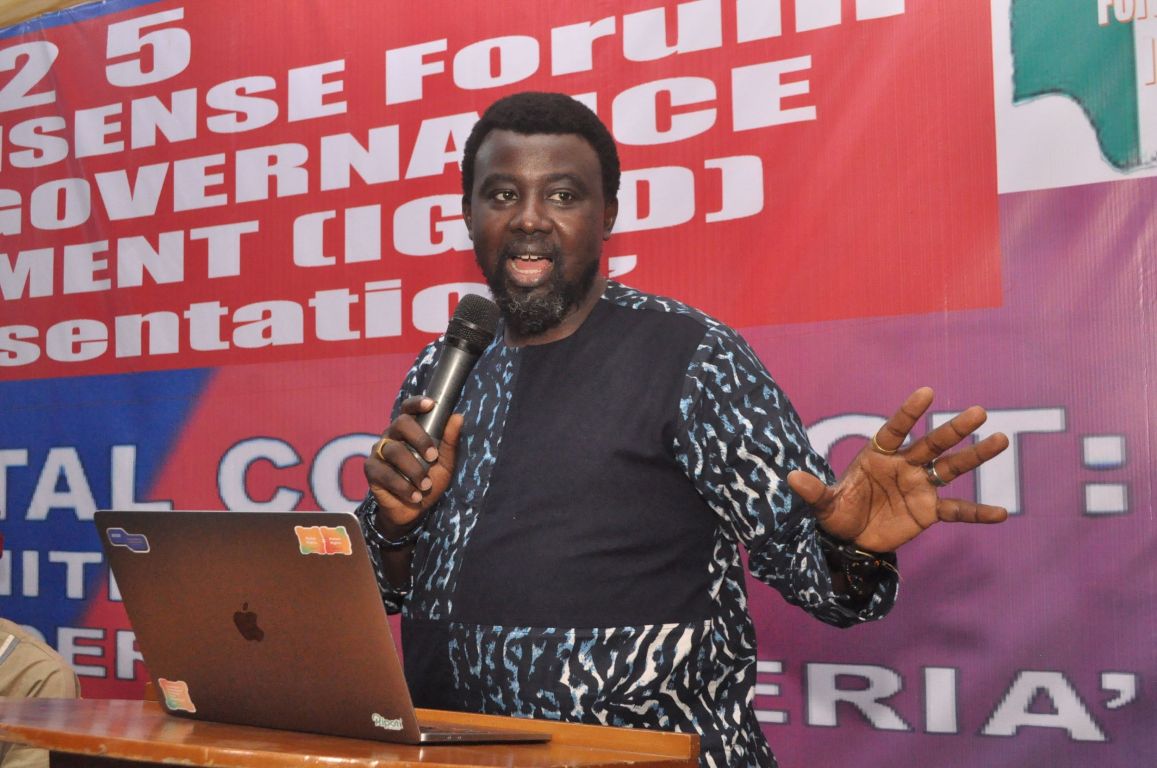

On Thursday, June 19, 2025, I had the honour of reviewing The Village Priest by Remmy Nweke—a powerful narrative that weaves together history, tradition, resistance, reconciliation, and innovation, set within the verdant hills of Ilimefo, a village nestled in the heart of Igboland, where “the air was alive with the whispers of ancestors and the rhythms of tradition.”
At the heart of this story is Ogboo AniEze, the revered traditional chief priest of Ilimefo. His life is “dedicated to the preservation and celebration of Ilimefo’s customs and traditions.” The book opens with a clear and symbolic statement of context: “The village and its people, their traditional practices and strong cultural heritage at the crossroads!” This sets the tone for what is not just a fictional tale but a textured documentation of a people’s encounter with time and change.
Ilimefo is introduced to us as a place where “tradition was woven into the very fabric of life,” with festivals like Onwu-ano linked to agricultural cycles and the rhythms of the earth. The rituals, we learn, are not arbitrary. They are “intricately woven” into the identity and continuity of the people. Ogboo AniEze does not merely perform these rituals—he embodies them. “His eyes, clouded with the wisdom of age, seemed to hold the secrets of the past,” and his voice “could calm the most troubled of minds.”
We are told, in great detail, about the structure and discipline of his priesthood: lieutenants from six villages, each with precise roles. Some “raise a cup of water,” others “kill the offerings,” while others “prepare the offerings when cooked.” The sacred rhythm of Ilimefo is grounded in Igbo cosmology, with rituals observed “every Eke market day,” that is, every five days.
As a young boy, Ogboo AniEze apprenticed under his grandfather, “a renowned traditional priest.” His education was both spiritual and practical—“the sacred languages,” “traditional healing practices,” and also “farming, hunting, and craftsmanship.” Through sacred journeys to forests, rivers, and mountains, “a deep connection to the natural world and the spirits that inhabited it” was forged.
One of the cultural pillars explored in the book is masquerading—a practice that carries symbolic, spiritual, and social weight. The masks “represent ancestral spirits, mythological creatures, and symbolic figures.” During festivals, “masked performers danced and sang,” their performances serving both as entertainment and as “social commentary, addressing issues and concerns.”
Yet, as the wind of change began to blow, Ogboo AniEze “encountered modernizing influences such as Christianity and western education,” which “challenged his traditionalist views.” Criticism followed—some said his values were “outdated and restrictive,” accusing him of “lack of adaptability,” and being “disconnected from the modern reality.” But for Ogboo, his visions, his ancestral worship, and his connection to “sacred journeys” remained a steadfast compass.
The villagers, meanwhile, expected him to do more than perform rituals. They expected him to provide “spiritual guidance, interpreting the will of the gods and ancestors,” “offering counseling and mediation,” and even guidance on agriculture and healing. He became “a respected and beloved figure,” not because he resisted change, but because he “found creative ways to balance the two.”
But change came fast and hard with the arrival of GSM—“a strange and mysterious piece of technology.” Introduced by “a group of outsiders, including a Catholic priest, Fada Ekie,” mobile phones arrived in Ilimefo, bringing with them “a stir among the villagers.” At first, the villagers were “fascinated and intimidated,” unsure how to engage with “small and sleek” devices that brought “the hum of signals and the chatter of voices.”
This is where the book truly grapples with its core tension. For Ogboo AniEze, GSM was both opportunity and threat. It “distracted them from their traditional practices” and “threatened to erode the cultural heritage of Ilimefo.” And when his own son, Okorie, embraced the technology, seeing “economic prospects” and “new possibilities,” the crisis became deeply personal.
Ogboo AniEze was “torn between his love and pride for his son and his concern for the impact of the technology.” He feared GSM would “lead to the erosion of the village’s cultural heritage” and cause a “brain drain” as young people “leave the village in search of better opportunities.” He also feared “isolation from the community” and began to “question his own faith and the traditions he had sworn to uphold.”
This led to the turning point. In the hills, he embarked on “dry fasting for a whole four market days.” He returned from that solitary experience with “a new found understanding.” He saw that GSM, though disruptive, “also offered opportunities for growth, development, and connection with the wider world.” He reconciled with Okorie. He apologized to the villagers. He even welcomed the presence of Fada Ekie, the Catholic priest.
What follows is a new era of harmony, where “tradition and modernity coexisted in balance.” Ogboo AniEze began to use mobile phones to “coordinate traditional ceremonies and rituals,” to “document the village’s traditions,” and to “connect with villagers in the diaspora.” The GSM technology, initially feared, became “a powerful tool for preserving the village’s cultural heritage.”
Through collaboration with Fada Ekie, Ilimefo experiences what the book calls a “fusion of traditions”—traditional prayers “incorporated into Catholic ceremonies,” Catholic teachings “infused with indigenous spiritual practices,” and “ancestor veneration blended with the tradition of honoring saints.” The result is “a new spiritual identity,” where “community healing practices” are made stronger through cooperation, and where “interfaith collaboration” becomes a working model for other communities.
Even as GSM introduced new social behaviours—such as Facebook Live streaming of village festivals, or parishioners charging phones during Mass—there is no ridicule or mockery. Instead, Remmy Nweke allows the reader to witness cultural evolution with empathy and respect.
In the Epilogue, we find Ogboo AniEze and Fada Ekie standing together, “looking out at the vibrant scene.” Their story is one of convergence, of two paths that once seemed to diverge, now blending into one shared future. As “the village erupted in joyous cheers,” they “clasped hands,” symbolizing a unity forged through respect, dialogue, and vision.
Let me end where the book ends—on a note of blessing and pride. At the close of the novel, as the village celebrates this new era, Ogboo AniEze declares it “Oyibo Day” and rolls out the drums—not to erase his past, but to embrace a future that includes both Okorie’s device and his own divination, both digital and divine.
The Village Priest is a careful work of cultural documentation, offering not just a story but a chronicle—a record of transition that many rural and even urban African communities continue to live through. It teaches us, without preaching, that true innovation is not in abandoning our roots, but in strengthening them with new tools.
Thank you.
GRTech
Refurbished tech: Making a smart choice for a greener future
By Qrent Managing Executive Kwirirai Rukowo
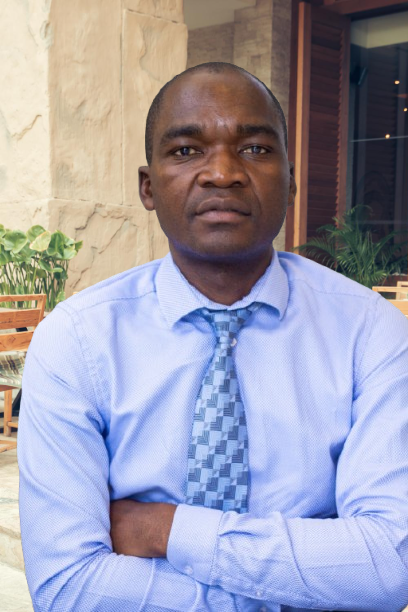

Consumers and businesses are constantly striving for the latest and greatest technology. However, behind the pursuit of cutting-edge devices lies a significant environmental toll – one that often goes unnoticed. The production of new technology requires vast amounts of natural resources, energy, and labour, contributing to both environmental degradation and significant carbon emissions.
With concerns about sustainability at an all-time high, companies are now looking for ways to reduce their environmental impact without compromising on performance or innovation. Refurbished tech, such as the solutions offered by Qrent, presents an effective, affordable, and eco-friendly alternative.
The refurbished computers and laptops market is set for remarkable expansion, driven by both cost-effectiveness and a growing commitment to sustainability. According to Credence Research, the market is projected to surge from USD 17,856.6 million in 2024 to USD 39,405 million by 2032, achieving a compound annual growth rate (CAGR) of 10.4% during the forecast period.
This growth underlines the increasing adoption of refurbished IT equipment by businesses, educational institutions, and individual consumers as they seek to balance performance with environmental responsibility. The rising trend not only helps organisations reduce capital expenditures but also supports circular economy initiatives by extending the lifecycle of electronic products
As businesses face increasing pressure to meet environmental, social, and governance (ESG) goals, refurbished tech is fast becoming a preferred choice for companies looking to cut costs while reducing their carbon footprints.
At Qrent, businesses can access high-quality, refurbished IT equipment that meets the demands of modern enterprises while simultaneously supporting sustainability initiatives. The company provides a range of refurbished devices including computers, laptops, and servers, ensuring that businesses can operate efficiently while minimising their environmental impact.
These devices are thoroughly tested and restored to like-new condition, offering the same reliability and performance as their brand-new counterparts but with a fraction of the carbon footprint.
Refurbished tech and the circular economy
The transition to a circular economy – a system that emphasises reusing, recycling, and remanufacturing – has become a critical strategy in tackling the world’s waste crisis. The electronics industry is one of the largest contributors to this crisis, with e-waste being the fastest-growing waste stream globally.
By choosing refurbished technology from Qrent, businesses contribute directly to the circular economy. When companies choose to refurbish and extend the lifecycle of their IT devices, they prevent valuable resources from ending up in landfills and reduce the demand for new products, thereby conserving raw materials and decreasing pollution.
Qrent’s refurbishment process includes the responsible recycling of old components and ensures that all equipment is brought back to life in an eco-friendly manner. This not only helps in reducing waste but also plays a significant role in limiting the environmental impact of tech manufacturing.
Embracing circular economy strategies not only prolongs the lifespan of IT assets but also significantly cuts down the need for new manufacturing – thereby reducing carbon emissions. The 2024 Forrester Report on The Circular Economy & Sustainable Manufacturing reveals that a substantial share of firms are already reaping sustainability benefits: 38% have adopted innovative delivery and fulfilment options that minimise waste, 32% are improving waste management practices, and 28% are focusing on more efficient material sourcing.
By opting for refurbished technology, companies can leverage these practices to lower reliance on virgin materials and the high emissions associated with producing new devices, marking a crucial step toward a greener, more sustainable IT procurement model.
Attaining your sustainability goals
Qrent provides businesses with sustainable IT solutions. The company not only supplies refurbished technology but also offers a comprehensive range of services that include equipment leasing, IT asset management, and secure data destruction. Businesses can now gain access to a scalable solution that meets their IT needs while simultaneously supporting their ESG initiatives.
The company’s commitment to reducing e-waste is evident in its emphasis on responsible recycling and disposal practices. When companies dispose their old IT equipment with Qrent through their IT Asset Disposal Solution, they can be confident that their devices will be decommissioned properly and reused, ensuring that valuable materials like metals, plastics, and glass are recovered and re-entered into the manufacturing cycle.
This process prevents toxic substances from polluting the environment and ensures that e-waste is managed in a safe, responsible manner.

